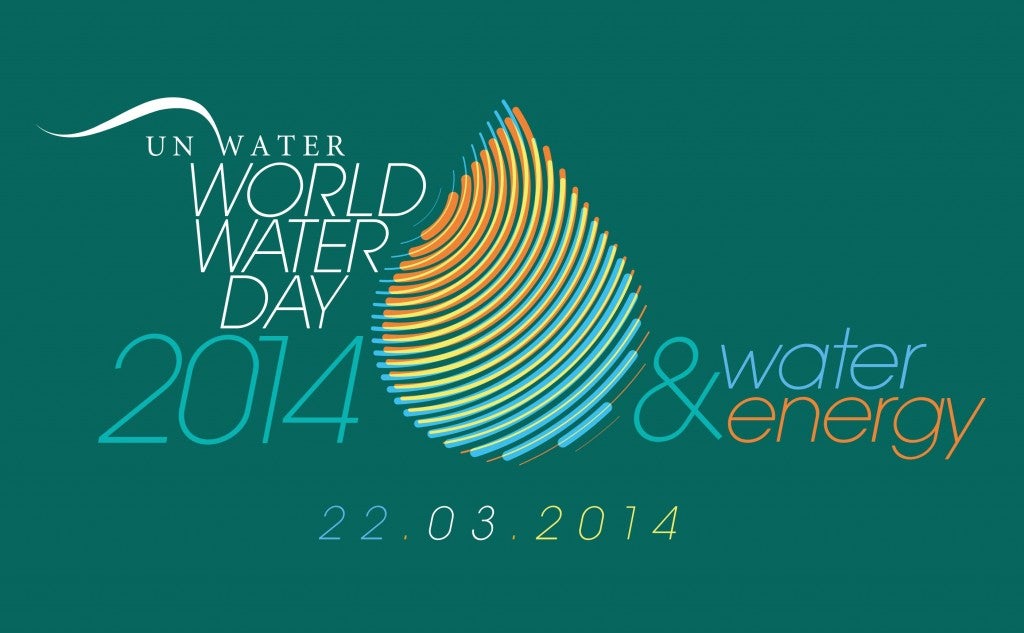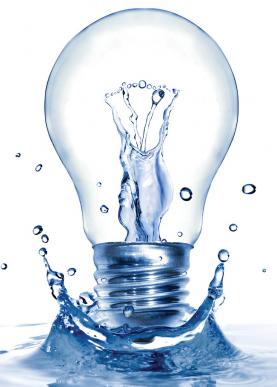The theme of this year’s World Water Day on March 22nd is the “energy-water nexus,” and the timing couldn’t be better. According to the United Nations (who first established World Water Day in 1993):
- 780 million people worldwide lack access to safe drinking water.
- 1.3 billion people worldwide lack access to electricity.
- 90 percent of the power generation in the world comes from water-intensive fossil fuels.
- As countries progress and develop, there is an increased risk of conflict between power generators, other water users, and environmental concerns.
- By 2035, global water withdrawals for energy are predicted to increase by 20 percent, and water consumption for energy is expected to increase by 85 percent.
For the past year, I’ve been trying to bring awareness to the connection between energy and water in Texas, but this issue is much bigger than a single state. Energy and water are both basic components of life and economic progress, and they are also inextricably linked. Energy is used to secure, deliver, treat, and distribute water, while water is used (and often degraded) to develop, process and deliver energy.
For 2014, the UN will highlight the inequality that results from the lack of coordination between the energy and water sectors.
The UN is interested in the energy-water nexus for the same reason that the World Bank is interested in it: the inequality of access to basic services, such as safe-drinking water and electricity, is unacceptable and indicative of extreme poverty across the globe. By coordinating policies and programs between the two sectors, energy and water can innovate together and improve people’s lives across the globe. Through this attention, it is hoped that these two sectors will enhance energy security and sustainable water use.
As population grows, energy and water must work together
Of particular concern is that as the global population grows, so will the demand for energy and water. As economic progress depends on the growth of these two sectors, it is becoming increasingly important to address the nexus between the energy and water in a holistic way. Scarcity of both or either resource threatens to undermine successful economic development. So, how do we manage our resources to ensure that they are available and sustainable?
Despite the inherent connection between the two sectors, energy and water planners routinely make decisions that impact one another without adequately understanding the scientific or policy complexities of the other sector. This miscommunication often hides joint opportunities for conservation to the detriment of budgets, efficiency, the environment, and public health.
Real solutions to real problems
A holistic outlook that integrates behavior, technology, and conservation is what’s needed to help set the world on a sustainable path. Greater efficiencies through an integrated approach to our energy and water constraints mean that we are protecting our resources and help to establish financial stability in these sectors.
So, while the energy-water nexus seems daunting, there are solutions to help mitigate or solve these challenges:
- Joint planning: With cooperation, energy and water sectors can successfully reduce the reliance on thirsty fossil-fuel electricity and bolster the supply of water. Better understanding of each other’s sectors will enhance coordination and better investment in long-term solutions to preserve our resources.
- Public education: Education about the energy-water nexus (saving water saves energy and vice versa) is needed, and people need to know that their individual choices do play an important role in solving this issue—choices in which foods they buy, which cars they drive, and more.
- Low-water energy resources: Support the development of solar and wind energy, which consume little to no water and generate negligible carbon emissions.
- Preservation: Recognize that our planet’s diverse ecosystems are part of the equation. Thoughtful management of the trade-offs between the needs of the energy and water sectors, and the plants and animals we share this planet with, is critical if we are going to ensure that short-term gains for economic development do not undermine the ecosystem that’s so important for future resilience and sustainability.
- Fair value pricing: Appropriately price energy and water resources to both provide sufficient revenues for industry players and promote conservation and efficiency through price signals.
The importance of the energy-water nexus is coming to the forefront as more people across the globe live in places that face constrained access to both of these important resources. As climate change continues to complicate the energy-water equation —for example, higher temperatures lead to increased demand for air conditioning, which stresses the electric grid and requires additional water for cooling—these challenges will intensify. That’s why the UN’s choice to feature the energy-water nexus as the theme for this year’s World Water Day could not come at a better time. The call to action is now, and our policies and investments must reflect the importance of this global priority.
If you interested in learning more about World Water Day, you can download the newest report here, to be released on March 22nd.
This commentary originally appeared on our EDF Voices blog.











